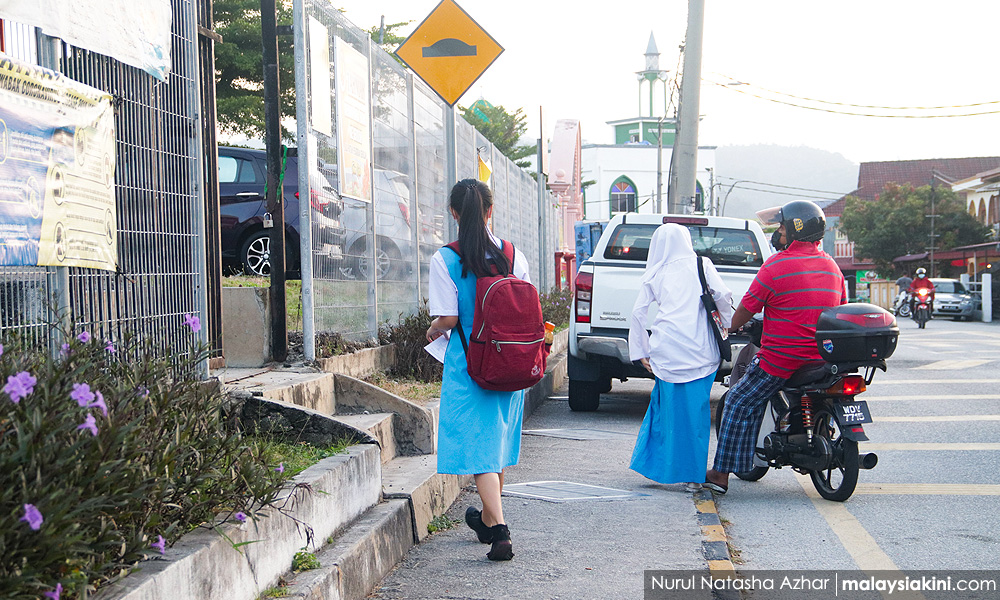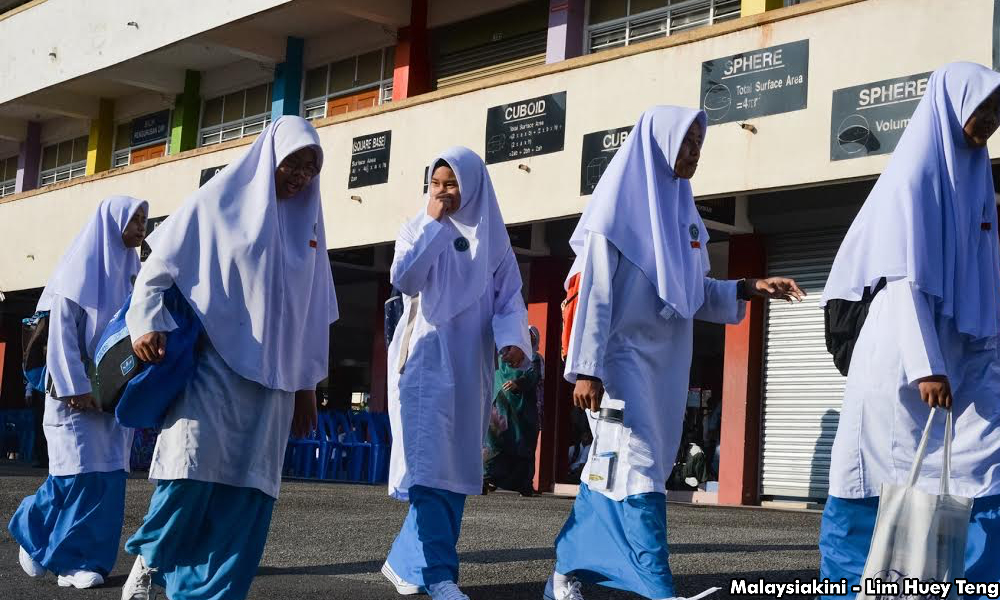Parents with children returning home from residential schools during the coming Hari Raya holidays should take the proactive step to inquire whether they have suffered from "period spot checks" and other forms of harassment.
A parent, who only wished to be known as Ismail, said this was based on personal experience after he recently discovered that his daughter, who graduated in 2018, had gone through degrading punishments during her years at a government residential school in a northern state.
Ismail said his daughter shared her story after being inspired by other students and former students who recently came out to expose incidents of menstrual "period shaming" and other forms of harassment in school, including at the hands of teachers.
"These teachers now know the attention they are getting because of the issue, they will warn the students: 'When you go back for holidays, do not tell them about anything.'
"They can warn the students that action will be taken. I am certain this is already happening, knowing the prevalent culture at these schools," said Ismail who previously served on the school's Parents-Teachers Association.
"So parents must be proactive because it is less likely their children will open up," he added.
The National Security Council yesterday announced that students in boarding schools and vocational schools outside of the enhanced movement control order areas will be allowed to return home in stages from May 6 to June 13.
Malaysiakini’s interviews with women and girls who experienced these period checks on them found such spot checks have been the practice in multiple schools in Malaysia for at least the last two decades.
They vary from groping a girl’s groin to see if she is wearing a sanitary pad to demanding evidence of bleeding, either through showing a soiled sanitary pad or swabbing the vagina with a finger, cotton bud, tissue or piece of paper for proof of bleeding.
Commenting further, Ismail said he was personally not surprised by his daughter's story, although he expressed regret that such incidents took place in the guise of upholding Islamic values.
"I have heard about so many cases before, not specifically period shaming, but others which showed how the teachers did not have any respect for the privacy of students."

He also said he would have lodged a complaint with the school administration had the incidents were reported to him when his daughter was still a student there.
Being one of the few government residential schools that offers an additional religious curriculum, Ismail said he was informed that the students there were targeted for parts of their uniforms that did not meet precise requirements beyond the standard attire.
"Any students found to be not in compliance will be dealt with very harshly and embarrassingly.
"So, this period shaming in actuality is a practice consistent with widespread shaming and abuse, especially of female students, that has been ongoing for quite some time," Ismail said.
Commenting on an offer for legal assistance by lawyer Jahaberdeen Mohamed Yunoos, Ismail said rather than taking up individual cases, parents with a similar intention to seek justice and push for a policy change could consider filing a class action suit.
Meanwhile, Ismail's daughter, Azila, said she felt empowered by the support from her parents to continue spreading awareness about such incidents to prevent other students from suffering such harassment.
"We were taught in high school that (menstrual) period is a taboo subject, so many of us did not discuss it with our parents.
"I only decided to tell my parents now because I see that it is happening everywhere, not just in religious schools," Azila told Malaysiakini.
According to the students, these incidents are not isolated in residential schools.
Another parent, who gave her name as Rahah, said teachers during her time in school had conducted checks on the colour of a female student's bra and whether they were wearing the required camisole.
"At the time, the ustazah (religious teachers) had no problems with us wearing shorts for physical education.
"In 1984, there was no imposition on wearing tudung or period checkings. When we said we cannot read the Al-Quran, the teachers would understand," Rahah told Malaysiakini.

Many years later, she said, her own four children - the eldest son and three daughters - had all gone to the same government school in Taman Tun Dr Ismail, and the checks of the female students had become even more intrusive.
"The period spot checks happened during my daughter's time. From what I heard, students who rebelled against the teacher's orders will get it worse," said Rahah who is now a grandmother.
"What I don't understand is that it is blatantly clear that such acts go against a person's decency. This was not practised many years ago.
"So, why is the Education Ministry not putting a stop to this? Why do they need to be sued for changes to take place?" she said in reference to Jahaberdeen's offer.
Rahah also recalled how she had attempted to take up certain matters with the school's administration but was left feeling frustrated, while her children were fearful of potential backlashes.
Majlis Amanah Rakyat (Mara) chairperson Azizah Mohd Dun previously said the council would review complaints about period spot checks against schoolgirls
Senior Education Minister Radzi Jidin has demanded to be informed of the exact schools where such incidents had allegedly taken place, stressing that the Education Ministry would take further action if there were complete details on the claims. - Mkini




No comments:
Post a Comment
Note: Only a member of this blog may post a comment.